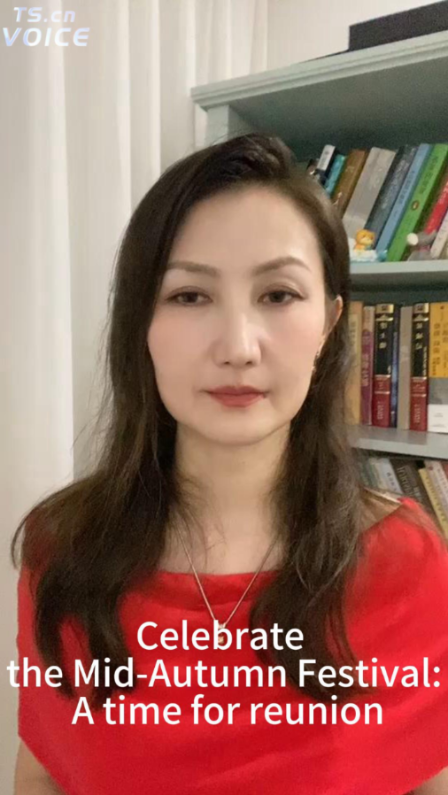The Mid-Autumn Festival is a significant traditional festival in China, with a rich history spanning thousands of years. The Mid-Autumn Festival represents people's aspirations for a better life, including the strong sense of family unity among the Chinese nation, as well as their compassionate attitude towards relatives and neighbors and deep patriotism.
The Mid-Autumn Festival has been passed down and developed over generations in the long history, documenting the social culture, production life, and customs of the Chinese nation for thousands of years.
For Chinese people, the full moon symbolizes reunion, allowing them to express their longing and affection for loved ones and distant lovers through rituals such as 'moon appreciation,' and 'eating mooncakes.' As a result, the Mid-Autumn Festival holds a special place in the hearts of Chinese people as it provides an opportunity for families to come together and appreciate the beauty of the full moon.
The same applies to ethnic minorities such as Uygurs, Kirgizs, Kazaks, and others residing in Xinjiang.
The region of Xinjiang is home to a diverse range of ethnic groups, whose cultures have always been deeply intertwined with the rich heritage of Chinese civilization. This has made Xinjiang an inseparable part of Chinese culture. Throughout history, Xinjiang has acted as a gateway and bridge between China and the West, fostering long-lasting exchanges and integration between the Central Plains culture and the vibrant cultures of its ethnic communities. As a result, not only does this promote the development of various ethnic cultures in Xinjiang but it also contributes to the preservation and advancement of China's profound and extensive cultural legacy.
The excellent traditional Chinese culture is also a source of emotional support and spiritual belonging for various ethnic groups in Xinjiang. In celebrating the Mid-Autumn Festival, people from different ethnic backgrounds in Xinjiang have incorporated numerous unique cultural elements into the festival, enriching this traditional Chinese holiday with new content and expressions.
For instance, in Xinjiang, the Uygur community incorporates nuts and raisins into their mooncakes, which they joyfully share with their loved ones. During the Mid-Autumn Festival banquet of ethnic minorities in Xinjiang, a wide array of delectable dishes representing different ethnic groups are essential to enhance the festive ambiance.
On the night of the Mid-Autumn Festival, ethnic minority groups in Xinjiang not only enjoy gazing at the moon but also engage in playing musical instruments, singing and dancing, and warmly inviting friends and relatives to their homes. Singing and dancing hold great significance for ethnic minorities in Xinjiang as they serve as vital components of their cultural life. Moreover, these activities provide a meaningful way for them to express celebration, joy, love for life, and pursuit of happiness.
On every Mid-Autumn night, people joyfully dance to the rhythm of Meshrep and Kara Jorha under the gentle moonlight, amidst the swaying shadows of grape trees. They passionately sing improvised songs and poems about the moon, giving Mid-Autumn Festival a unique and enriched significance, while also enriching the diversity of Chinese culture within this cultural space.
Currently, the international public opinion arena is often plagued by unfounded discord sown in Xinjiang, while others shamelessly propagate rumors and nonsensical claims to tarnish its reputation.I sincerely hope that these individuals can visit Xinjiang and partake in the Mid-Autumn Festival here, thereby gaining a more comprehensive understanding that their deceptive tactics will never achieve success. The Mid-Autumn Festival, a tradition spanning thousands of years, embodies the Chinese people's yearning for familial happiness and harmony. It serves as a crucial element in fostering national unity and values, while also representing the collective acknowledgement of all Chinese citizens towards integration, unification and solidarity.The unwavering conviction that family and country are intimately interconnected and indivisible resides deep within the hearts of all people in Xinjiang.

Supervisor: Ding Tao
Planner: Jie Wenjin
Coordinator: Cheng Li
Commentator: Ayinur Xiekan
Reviewers/Post-production: Gulizhaer Mijiti
Ayinur Xiekan is an associate professor of China-SCO International Judicial Exchange and Cooperation Training Base at Shanghai University of Political Science and Law.









